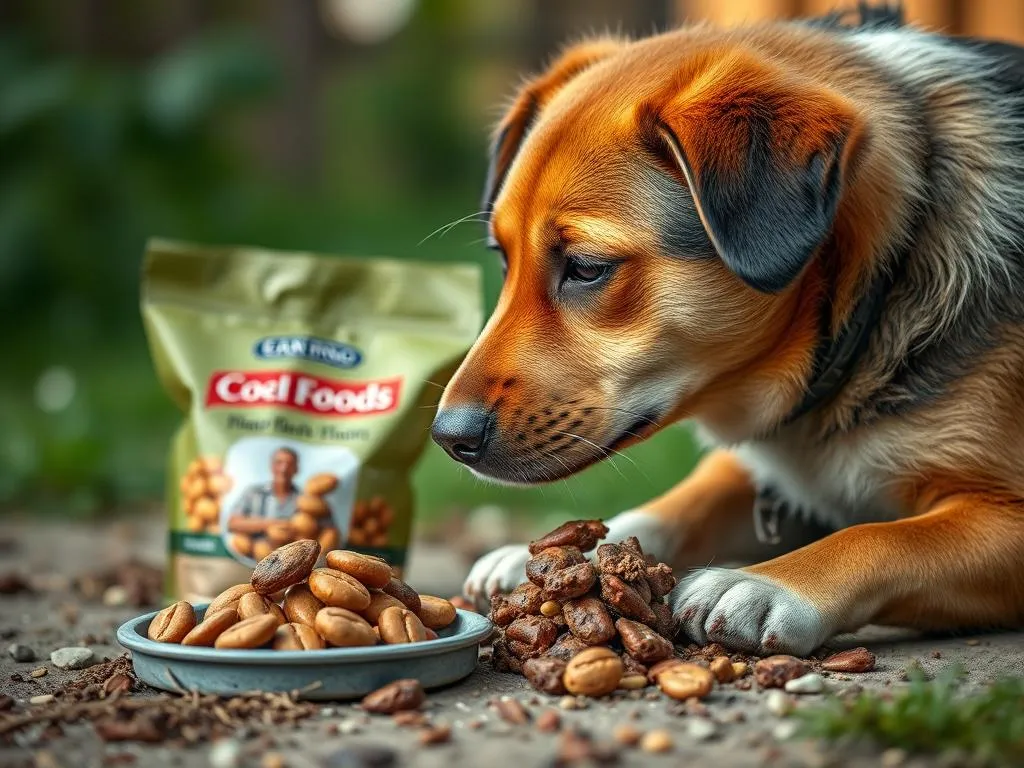
Introduction
Balanced nutrition is crucial for our furry friends, influencing not only their overall health but also their digestive well-being. A well-formulated diet can make a significant difference in how efficiently a dog digests food and the amount of waste they produce. As a dog owner, you may have noticed that some dog foods lead to more frequent bathroom breaks or larger piles of poop. This blog post will guide you through the best dog foods for less poop, helping you make informed choices that promote healthy digestion while reducing waste.
Understanding Dog Digestion
The Digestive System of Dogs
Dogs have a unique digestive system that is designed to process their natural diet, which is primarily meat-based. Unlike humans, dogs have a shorter gastrointestinal tract, which allows for quicker digestion. The main components of a dog’s digestive system include:
- Mouth: Where food is broken down by chewing and saliva.
- Stomach: A muscular sac that further digests food using acids and enzymes.
- Small Intestine: The primary site for nutrient absorption.
- Large Intestine: Absorbs water and forms waste.
Understanding this anatomy is essential, as it explains why certain foods may be more suitable for dogs than others.
Common Digestive Issues in Dogs
Many dogs experience digestive issues, which can manifest as symptoms such as diarrhea, excessive gas, or vomiting. Common causes of these problems include:
- Food Sensitivities: Certain ingredients may not sit well with your dog.
- Poor-Quality Ingredients: Low-grade dog foods often contain fillers and artificial additives that can disrupt digestion.
- Dietary Changes: Abrupt changes in diet can lead to upset stomachs.
Identifying and addressing these issues is key to ensuring your dog has a healthy digestive system and, ultimately, less poop.
Factors Influencing Dog Waste
Ingredients in Dog Food
When looking for the best dog foods for less poop, it’s essential to consider the ingredients. Here’s how they play a role:
- Protein: High-quality protein sources, such as chicken, beef, or fish, are easier for dogs to digest and lead to less waste.
- Fats: Healthy fats provide energy and help maintain skin and coat health. However, the right balance is crucial.
- Carbohydrates: While some carbs can be beneficial, low-quality grains can lead to digestive issues.
Quality vs. Quantity of Food
The quality of dog food is often more important than the quantity you feed. High-quality ingredients can result in better digestion, meaning your dog absorbs more nutrients and produces less waste. In contrast, cheaper dog foods may require larger portions to meet nutritional needs, leading to increased poop output.
Food Additives and Fillers
Beware of artificial additives and fillers in dog food. Ingredients like corn, soy, and wheat can cause digestive problems in many dogs. Opting for brands that focus on whole food ingredients can significantly enhance your dog’s digestive health, resulting in less poop.
Top Nutritional Considerations
High-Quality Proteins
When selecting dog food, prioritize high-quality animal proteins. Here are some of the best sources:
- Chicken: A lean protein that is easily digestible.
- Turkey: Lower in fat compared to some other meats.
- Fish: Rich in omega fatty acids, which support overall health.
Lean meats and fish provide essential amino acids that help maintain muscle mass and promote overall health while reducing waste.
Digestible Carbohydrates
Not all carbohydrates are created equal. Opt for digestible carbs like:
- Sweet Potatoes: High in fiber and vitamins.
- Brown Rice: A good source of energy and easy on the stomach.
Avoid grains that may cause sensitivities, such as wheat and corn, as these can lead to increased waste and digestive discomfort.
Healthy Fats
Healthy fats are vital for a dog’s diet. Focus on including sources of omega-3 and omega-6 fatty acids, which support skin health and reduce inflammation. Some excellent sources include:
- Fish Oil: Rich in omega-3s.
- Flaxseed: A plant-based source of omega-3 fatty acids.
These fats not only support overall health but also contribute to better digestion and less poop.
Fiber Content
Fiber is an essential component of your dog’s diet, aiding digestion and promoting regular bowel movements. Consider incorporating fiber-rich foods such as:
- Pumpkin: Helps regulate digestion and is low in calories.
- Peas: A great source of fiber and protein.
Choosing dog foods with balanced fiber content can help maintain a healthy digestive system and minimize waste.
Recommendations for the Best Dog Foods
Top Brands for Less Poop
When it comes to finding the best dog foods for less poop, several brands are known for their high-quality, digestible ingredients. Here are a few that stand out:
- Orijen: Known for its high-protein, grain-free options.
- Taste of the Wild: Offers grain-free recipes that feature real meat as the first ingredient.
- Blue Buffalo: Provides a variety of formulas, including options for sensitive stomachs that promote less waste.
These brands focus on high-quality ingredients that support healthy digestion, resulting in less poop.
Grain-Free Options
Grain-free diets can be beneficial for dogs that are sensitive to grains. These diets often consist of high-quality protein and digestible carbohydrates. Brands to consider include:
- Merrick Grain-Free: Offers a variety of protein-rich recipes without grains.
- Wellness CORE Grain-Free: Focuses on high-quality proteins and fewer fillers.
While grain-free diets can be beneficial, it’s essential to monitor your dog’s reaction to ensure they are digesting the food well.
Limited Ingredient Diets
For dogs with food sensitivities, limited ingredient diets (LIDs) can be particularly helpful. These diets minimize the number of ingredients, making it easier to identify potential allergens. Brands that offer LIDs include:
- Natural Balance L.I.D.: Offers various proteins and limited ingredients to reduce sensitivities.
- Canidae Pure: Provides a range of formulas with fewer ingredients and high-quality proteins.
Choosing LIDs may help maintain your dog’s digestive health and reduce waste output.
Homemade Dog Food Options
Benefits of Homemade Dog Food
Preparing homemade dog food allows you to have complete control over ingredients and nutrition. This can be particularly beneficial for dogs with specific dietary needs or sensitivities. Plus, many owners find that their dogs enjoy homemade meals more than commercial options.
Essential Ingredients for Homemade Dog Food
If you’re considering making your dog’s food at home, ensure you include balanced nutrients. Here are some essential components:
- Proteins: Lean meats or fish as the primary protein source.
- Carbohydrates: Include sweet potatoes or brown rice for digestible energy.
- Vegetables: Carrots, peas, and green beans provide vitamins and minerals.
- Fats: Add a source of healthy fats, such as fish oil or flaxseed.
Consult with a veterinarian or a pet nutritionist to ensure you’re meeting all of your dog’s dietary needs.
Transitioning to a New Dog Food
Signs Your Dog Needs a Diet Change
If your dog exhibits symptoms such as frequent stomach upset, excessive gas, or changes in stool consistency, it may be time to evaluate their diet. Observing these signs can indicate that the current food is not meeting their nutritional needs.
How to Transition Properly
When switching dog foods, it’s essential to do so gradually to avoid digestive upset. Here’s how to make the transition:
- Start Slowly: Begin by mixing a small amount of the new food with the current food.
- Increase Gradually: Over the course of a week or two, gradually increase the proportion of new food while decreasing the old.
- Monitor Your Dog: Keep an eye on their stool consistency and overall health during the transition.
This gradual approach will help your dog adjust to the new diet and minimize any digestive issues.
Conclusion
Choosing the right dog food can significantly impact your pet’s digestive health and the quantity of waste they produce. Prioritizing high-quality proteins, digestible carbohydrates, and healthy fats can lead to better digestion and less poop. Remember to consult with your veterinarian for personalized dietary recommendations suited to your dog’s specific needs. By making informed choices, you can enhance your dog’s health and reduce waste, creating a happier home for both you and your furry friend.









